15 Best College Degrees for Animal Lovers
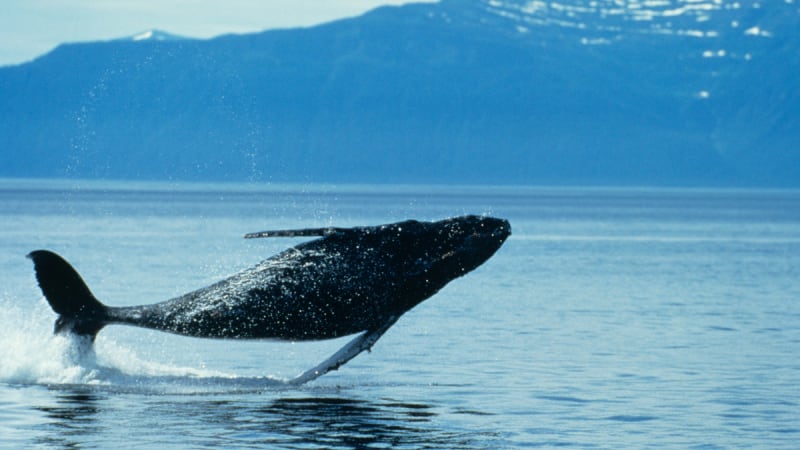
Key Takeaways
- Schools offer a wide range of degrees for people wanting to work with animals, the environment, and agriculture.
- Based on a person’s career goals and preferences, there are degrees available for those wishing to work with both domestic animals and wildlife.
- There are a plethora of career options available for those who want to work with animals.

Before you pursue a career working with animals, it’s important to know what your interests are and what specific parts of animal care and research you would like to work in. As with any career, it’s important to be honest with yourself about your capabilities and desires. There are many rewarding parts of a career working with animals, so it’s important to take time to reflect about your goals and desired outcomes.
Key Questions to Consider
Why do I want to learn about animals?
Maybe you want to learn about animals because you had a favorite pet growing up that started a deep love to furry (or scaly) creatures. Maybe you’re passionate about making sure animals’ habitats and homes are secure for future generations. Maybe you want to be a farmer and are interested in the best ways to care for your stock. The field of animal care is as vast and diverse as the animal kingdom itself. Knowing your motivation for learning about animals can help you decide what career you would find the most enjoyment and purpose in. Many programs will include hands-on learning opportunities to help you narrow down your interests.
What animals am I most interested in?
If you like farm animals, then maybe a degree in agribusiness would be perfect for you. If you prefer marine life, then a degree in marine biology could be the best fit for you. Keeping in mind what animals you are most interested in will help inform your decision of what you want to study.
Additionally, maybe there are certain aspects of animal care that entice you. You might be most interested in preserving their natural habitat, caring for their physical health, or helping shape their behavior. These factors can be guideposts to you as you decide on your degree and career path.
Have I considered the harder aspects of working with animals?
While animals can be cute and cuddly, there are also some less than glamorous sides of animal care. Whether you want to work a veterinarian’s office, at a wildlife refuge, or a zoo, you will undoubtedly encounter aspects as animal care that are less than ideal. This could look like cleaning up after animals, managing scared or hard to control creatures, and more. Many people who work with animals report long hours and a physically demanding work environment.
While this is typical of animal work environments, it is not true of every role. Make sure to do your research on what certain jobs will entail so you can set yourself up for success. If you love animals but have no desire to be in potentially dangerous situations, consider look into jobs that don’t require that of you. Maybe being an advocate for animals, an animal researcher, or someone who studies the environment is more up your alley.
Am I okay with the potential emotional roller coaster?
This is something to be aware of during your course of study, but also in your potential career field once you graduate. During school, most animal-centered majors will require a good amount of science courses. These are historically challenging so it’s important to know if this is something you are up for. If you don’t love the sciences, maybe consider a major that deals with animal behavior or ways to help animals in more indirect ways.
After your degree comes what you’ve been waiting for: putting the skills you’ve learned to work in the real world! While there are many benefits to working with animals, it can also be an emotionally challenging job. You might have to work with sick or dying animals, or animals that could pose a threat to your safety. Keep in minds the benefits and the disadvantages so that you won’t be disillusioned when the hard parts of the job come.
Would I want to learn about the medical/science side of animal care?
Many animal related degrees are extremely science-heavy. Degrees related to animals will most likely include advanced science classes, such as biochemistry, organic chemistry, and the like. While there are some animal degree programs that are not as science intensive, students should still be prepared for at least a few biology classes. This is to ensure that you are as prepared as possible to meet the needs of the animals you work with.
Keep in mind that many of the more technical roles of animal care and research require advanced degrees. For example, if you want to become a veterinarian, you will need to pursue your Doctor of Veterinary Medicine. If you want to be a biologist or zoologist, you will need at least a bachelor’s or master’s for entry level positions, but a Ph.D. to lead research. It is important to keep the amount of schooling you want to pursue in mind so that you can make the best decision regarding your career path.
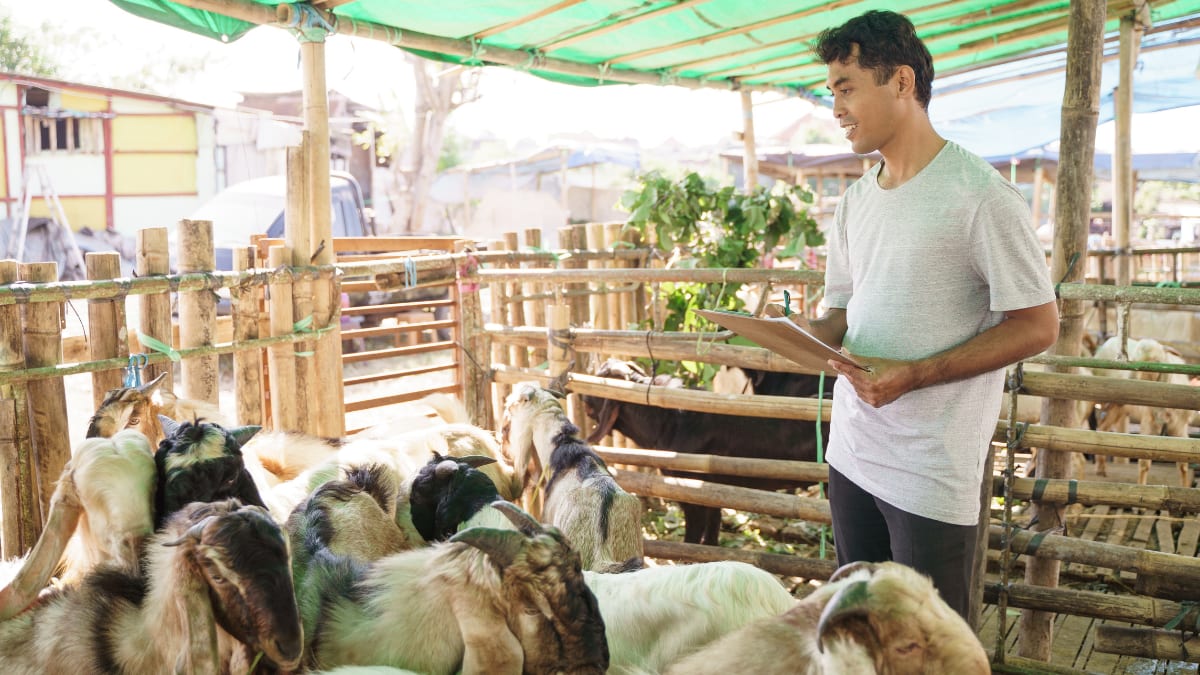
What is the Career Outlook Like for Animal Lovers?
There are many different animal-related jobs in the United States. The career outlook for each one differs based on location and field. However, according to the U.S. Bureau of Labor Statistics, the overall trend for animal-related careers shows an upward trajectory. In total, animal care and service workers are expected to experience a 16% job growth, which is faster than the national average.
According to the U.S. Bureau of Labor Statistics, the demand for veterinarians is expected to grow by 20%, faster than average considering all other career fields. Because of this, veterinarian technicians are also in higher demand. For roles involving animal behavior, such as animal trainers and pet service workers, there is a predicted 16% job growth, which is faster than the average rate.
In terms of careers for those wanting to work with more exotic animals, the job outlook for zoologists and wildlife biologists is only expected to grow by 3%, which is about as fast as all other occupations. For those wanting a little tamer of a role, farmers and agricultural managers can expect a job decline of about 5%. Despite this decline, there are about 90,000 new job openings every year in this industry.
15 Best College Degrees for Animal-Lovers
Using our proprietary InfluenceRanking™ Engine—innovative machine-learning technology that objectively measures a school’s influence through its students, faculty, staff, and alumni—Academic Influence ranked the best college degrees for animal lovers in the US according to the following criteria:
- Demand and outlook for career fields related to the degree
- How many students are pursuing each field
- Applicability of the degree in today’s workforce
You might also be interested in our ranking of the best colleges and universities for biology degrees or the best online degrees in agribusiness.
- 1
Veterinary Biomedical Technology
A major in veterinary biomedical technology can prepare students to enter one of the fastest growing career fields in the United States, veterinary technology. Students will leave this program prepared to assist veterinarians in readying animals, equipment, and medications for medical examinations and surgery.
Common courses include introduction to the profession of veterinary medicine, humane treatment and handling of animals, veterinary parasitology and entomology, and large animal clinical nursing techniques. Students will also typically complete a number of internships so that they can enter the workforce prepared.
Potential Career Paths for Veterinary Biomedical Technology Majors:
- Veterinary Office Manager
- Veterinary Technician
- Biotechnologist
Schools that Offer Degrees in Veterinary Biomedical Technology
- 2
Pre-Veterinary Medicine
This major is designed for those planning on pursuing their doctorate in veterinary medicine. Students can expect to learn the anatomy and physiology of many animals while studying the biology and chemical components as well.
Students will participate in courses such as anatomy and physiology of domestic animals, animal nutrition, livestock management techniques, and veterinary medical terminology. Students should be prepared for a high number of science classes, such as organic chemistry, microbiology, and nutritional biochemistry. Labs will be required and necessary for students to learn the skills needed to continue on to veterinary medical school.
Potential Career Paths for Pre-Veterinary Medicine Majors:
- Veterinarian
- Veterinary Assistant
- Laboratory Technologist
Schools that Offer Degrees in Pre-Veterinary Medicine
- 3
Biological Sciences
Biological sciences, sciences related to the study of life, include biology, chemistry, biochemistry, neurobiology, developmental biology, and more. These sciences give students a grasp at concepts such as molecular medicine, ecology and the environment, genetic regulation of plant and animal development, and cell dynamics and motility. These concepts can prepare students for a career with animals as students will have a better understanding of what it takes to keep animals and their environments healthy.
Common courses include bacterial diversity and physiology, physical chemistry for life science, disease and society, and advanced genetics. Students should be prepared to take a number of labs and complete field work as a part of their course of study.
Potential Career Paths for Biological Science Majors:
- Environmental Conservationist
- Animal Care Specialist
- Biological Science Educator
Schools that Offer Degrees in Biological Sciences
- 4
Agricultural Management
Agricultural management, also known as agribusiness management, majors learn about farm management, public policy, food issues, and more. Graduates of programs in agricultural management will learn how to manage and grow farms and businesses. They will be able to gain a systemwide understanding of managerial problems and processes.
Common courses include agricultural economics, propagation of horticultural plants, animal health and disease control, livestock selection and evaluation, and livestock genetics. Degree seekers should also expect a high number of business classes.
Potential Career Paths for Agriculture Management Majors:
- Agricultural Operations Specialist
- Agricultural Market Analyst
- Agronomy Salesperson
Schools that Offer Degrees in Agricultural Management
- 5
Animal Behavior and Ethology
Students of animal behavior and ethology are primarily concerned with studying what animals do and the neural mechanisms that make this possible. They will study the causes, functions, development, and evolution of behavior. Students will learn the effects of animals’ behavior and its adaptive significance. Animal sensation, cognition, and behavior are all primary focuses in this course of study and as a student progresses through their degree, they will begin to focus on a specific area of animal behavior, such as communication or social skills.
Common courses include perspectives in animal behavior, mechanisms of behavior perspectives, ecosystem ecology and global change, and immune response and behavior. Students should expect science classes such as biology and chemistry, but also psychology classes to understand the implications of behavior.
Potential Career Paths for Animal Behavior and Ethology Majors:
- Animal Trainer
- Applied Animal Behavior Specialist
- Animal Adoption Manager
Schools that Offer Degrees in Animal Behavior and Ethology
- 6
Ecology
Ecology majors will focus on environmental science, conservation, and research. This might look like focusing on agricultural practices to study which ones will be of most benefit to the environment. It might also look like focusing on nonrenewable resources, studying how to preserve them and care for future generations. Students will learn about natural biological cycles, problem solve agricultural and environmental problems, and find long term solutions to environmental problems today. They will study terrestrial and aquatic ecological systems.
Common courses include fundamentals of ecology, diversity and evolution of plants, fire ecology and biogeochemistry, and forest tree physiology and breeding. Students will also learn about agroecology, crop and soil sciences, animal science, soil fertility and nutrient cyclings, entomology, and more.
Potential Career Paths for Ecology Majors:
- Botanist
- Natural Resources Specialist
- Field Ecologist
Schools that Offer Degrees in Ecology
- 7
Animal Science
A degree in animal science should leave a student with scientific expertise in chemistry, biology, and the physical sciences. Students will learn about animal systems and animal behavior principles. This is a hands-on major, and students will not only complete labs, but field work as well. This major typically focuses on the agriculture and food industry side of animal care, but there are some programs that will be focused on the clinical aspects of animal care.
Common courses include general animal science, animal production systems, animal breeding, and food bacteriology. In most degree plans, there will also be a large number of communications and business courses to ensure students are prepared to enter this industry.
Potential Career Paths for Animal Science Majors:
- Agricultural and Food Scientist
- Production Supervisor
- Animal Sales Representative
Schools that Offer Degrees in Animal Science
- 8
Marine Biology
A major in marine biology will allow students to study the life processes of organisms that live in saltwater environments. Students will study everything from genetics to ecosystem functioning to physiological traits. Students can expect to learn about marine biodiversity, ecology and ecosystems, and organismal processes.
Students will also study conservation techniques and resource management. Common courses include marine physiology, marine evolutionary biology, scientific writing in marine biology, and marine biogeochemical cycles. Students should expect a high number of science courses, such as chemistry of marine organic carbon, organic chemistry, and aquatic ecophysiology.
Potential Career Paths for Marine Biology Majors:
- Marine Biologist
- Aquatic Scientist
- Marine Conservation Coordinator
Schools that Offer Degrees in Marine Biology
- 9
Zoology
Zoology majors study animals’ inner workings, activities, and evolution. They will also study various habitats and conservation theories. This degree is broad in scope with students studying everything from insects to mammals. However, as these majors progress, they might decide to focus in on a particular animal group that will prepare them for their future career.
Common courses for those majoring in zoology include animal behavior and conservation, vertebrate zoology, field methods, genome evolution, and zoopathological ecology. Students should expect to take many classes in biology and chemistry as well.
Potential Career Paths for Zoology Majors:
- Zoologist
- Scientific Technical Writer
- Animal Physiotherapist
Schools that Offer Degrees in Zoology
- 10
Wildlife Biology
Students studying wildlife biology will develop a strong science foundation as well as an understanding of natural resources and the environment. Students can expect to leave this major prepared to work with the ecology, habitat, and conservation of wild animals.
Common courses include general genetics, advanced vertebrate studies, methods of wildlife ecology and conservation, mammalogy, and natural resource management. Students can also expect to take a large number of courses in biology, chemistry, and biochemistry.
Potential Career Paths for Wildlife Biology Majors:
- Wildlife Law Enforcement Officer
- Wildlife Journalist
- Fishery Manager
Schools that Offer Degrees in Wildlife Biology
- 11
Environmental Science
Majors of environmental science will study the natural sciences with the end goal of learning responsible stewardship of the planet. As they learn how the physical and biological sciences shape the natural world, they will be equipped to fix and help some of the world’s most pressing environmental concerns. Many programs will include hands-on learning experiences such as labs and field-based experiences to enable students to develop the tools needed to make a difference in the environmental sphere.
Common courses include environmental compliance, weather and climate, organisms to ecosystems, and sustainable development. Students can also expect a large number of chemistry and biology classes.
Potential Career Paths for Environmental Science Majors:
- Environmental Engineer
- Geographic Information Systems Specialist
- Environmental Science Teacher
Schools that Offer Degrees in Environmental Science
- 12
Wildlife Conservation
Students in a wildlife conservation major typically study with their end goal being to use their knowledge to preserve the environment and the earth’s resources and ensure animals and generations to come will be cared for. They will gain a broad knowledge of wildlife management, ecology, and the preservation of biodiversity.
Common courses include becoming a wildlife professional, field methods in wildlife and conservation science, plant diversity and conservation, principles of sustainability, and agricultural law. People in this major can typically either decide to focus on the biological or agricultural aspects of conservation, so this distinction might change their class breakdown. Those focused more on biology will take more science-heavy classes while those in the agricultural track will learn more about natural resources and industry.
Potential Career Paths for Wildlife Conservation Majors:
- Park Ranger
- Conservation Planner
- Wildlife Rehabilitation Manager
Schools that Offer Degrees in Wildlife Conservation
- 13
Oceanography
Oceanography majors will learn about the oceans, their content, their currents, and their boundaries. Typically, students will focus on one of the following areas: ocean climate, marine ecosystems, marine chemistry and geochemistry, or ocean observing science and technology. Students will learn how to monitor water quality and conduct climate change research. They will also learn how to respond to oil spills, severe weather predictions, and human health threats.
Common courses include geological oceanography, marine ecosystem processes, ocean observing systems, and oceanographic field and laboratory methods. Students will learn about the cause and effect relationships of the ocean’s various components, how humans and other factors can disrupt this, and how to protect the ocean and its resources.
Potential Career Paths for Oceanography Majors:
- Marine Researcher
- Oceanographer
- Marine Chemist
Schools that Offer Degrees in Oceanography
- 14
Exotic Animal Training and Management
The study of exotic animal training and management, also called zoo management, is for students who want to work with marine mammals and other exotic wildlife. This is another hands-on degree, as students will learn how to handle and train wildlife, build behavioral enrichment programs, create proper diets, and discover ways to minimize disease transmission.
Common courses include principles of zoo science, zoo and aquarium operations, zoo education, and carnivore training and behavior. Students will also typically take a number of business classes in this major as they learn what it takes to operate and manage zoos and other animal organizations.
Potential career paths:
- Wildlife Refuge Manager
- Endangered Species Specialist
- Wildlife Clinician
Schools that Offer Degrees in Exotic Animal Training and Management
- 15
Animal Nutrition
An animal nutritionist combines their knowledge of nutrition, animal science, and individual animal needs to create diets and lifestyle changes for animals. Their job is to optimize animals’ quality of life and they do this through a variety of ways. They will evaluate food and diet plans, complete environmental analyses of living spaces and physical activity, and create nutrition plans based on the specific animal’s needs. A major in animal nutrition will provide students with the necessary training to complete these tasks.
Common courses include integrated cattle nutrition, nutritional physiology and biochemistry, and mechanisms of animal growth and development. Students can expect a large number of science classes, such as microbiology, biochemistry, and organic chemistry.
Potential Career Paths for Animal Nutrition Majors:
- Animal Nutritionist
- Animal Production Manager
- Animal Systems Specialist
Schools that Offer Degrees in Animal Nutrition
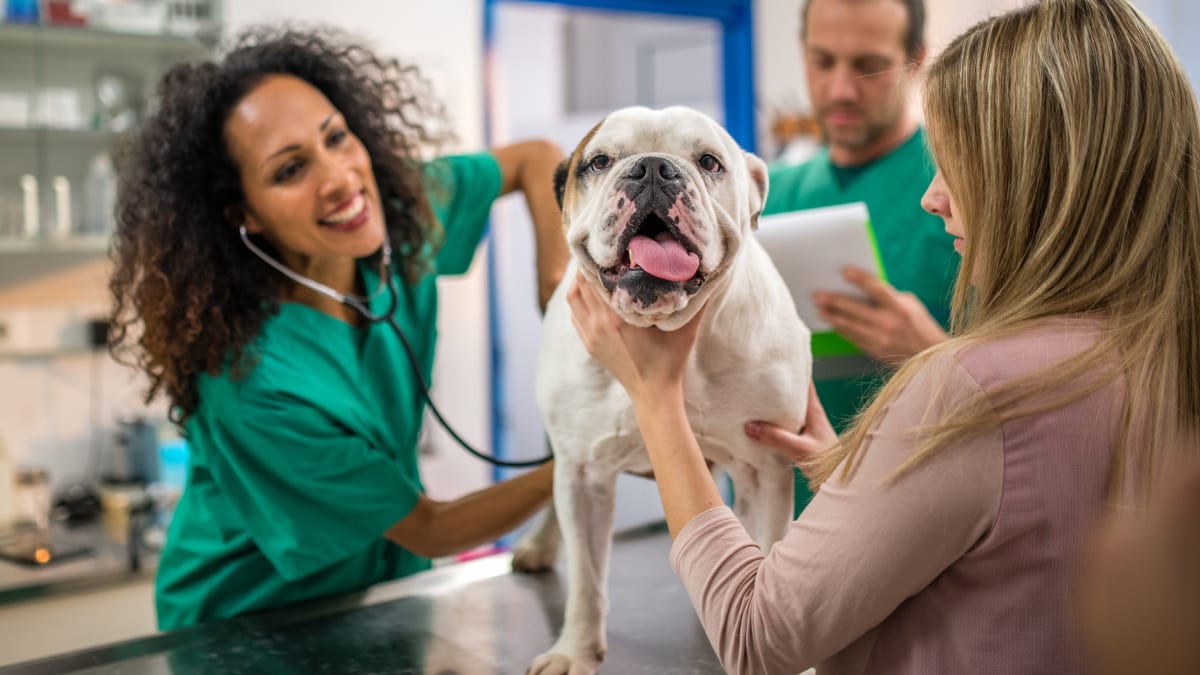
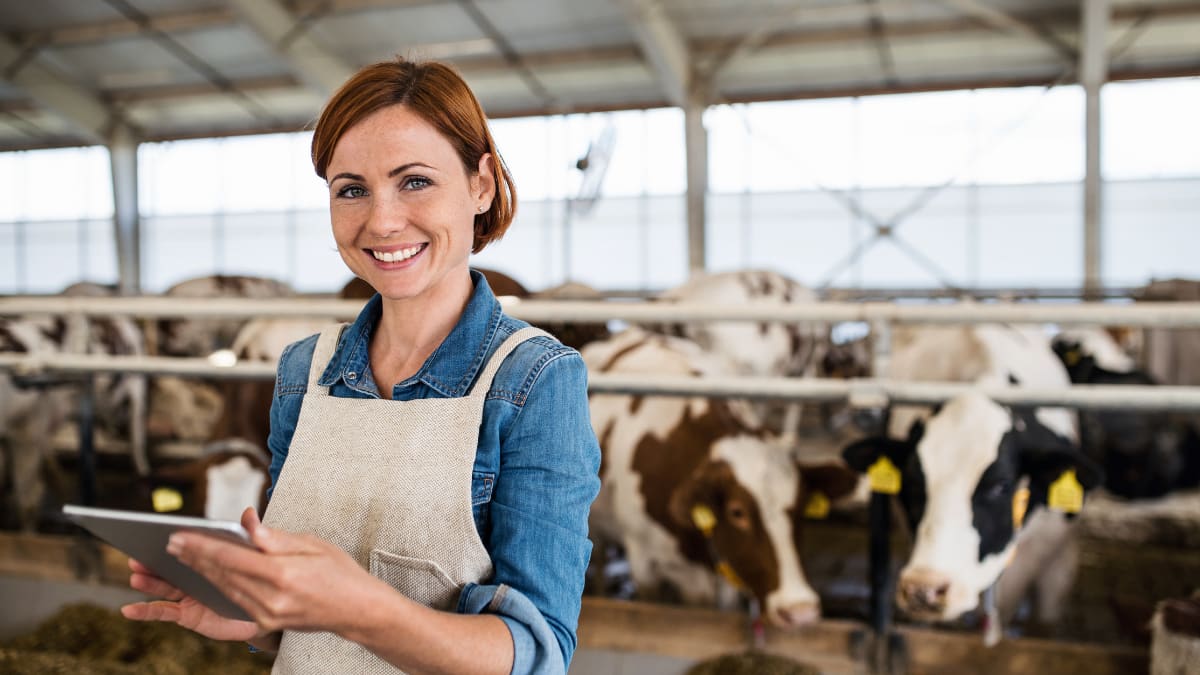
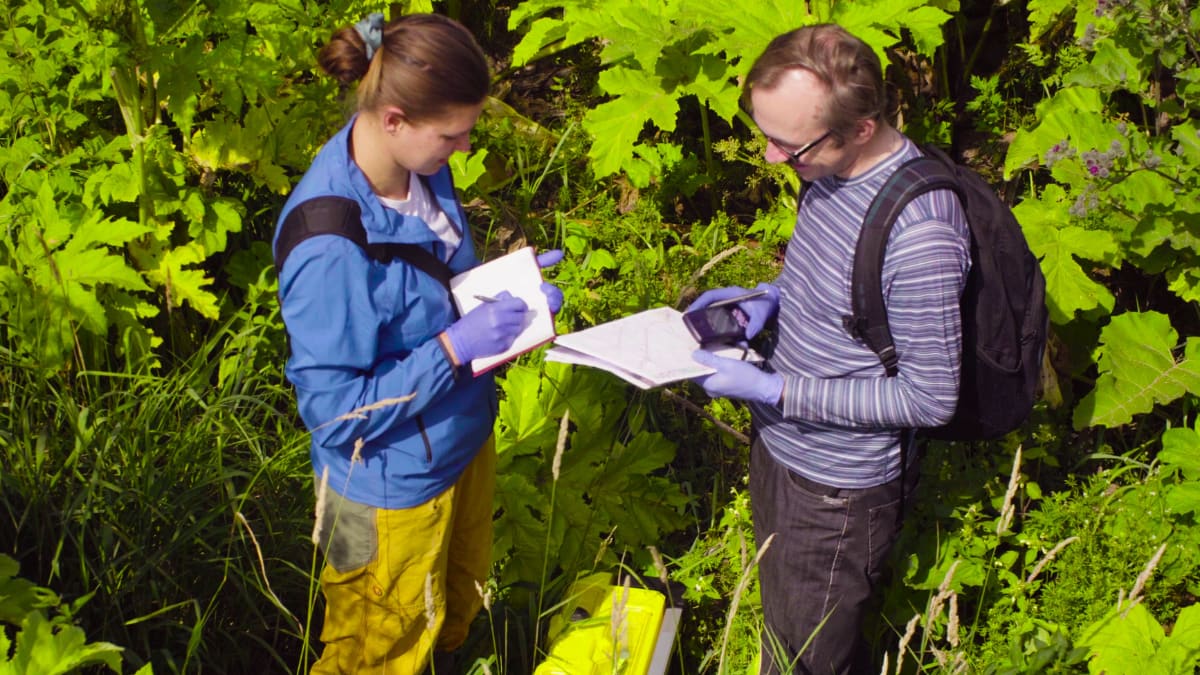
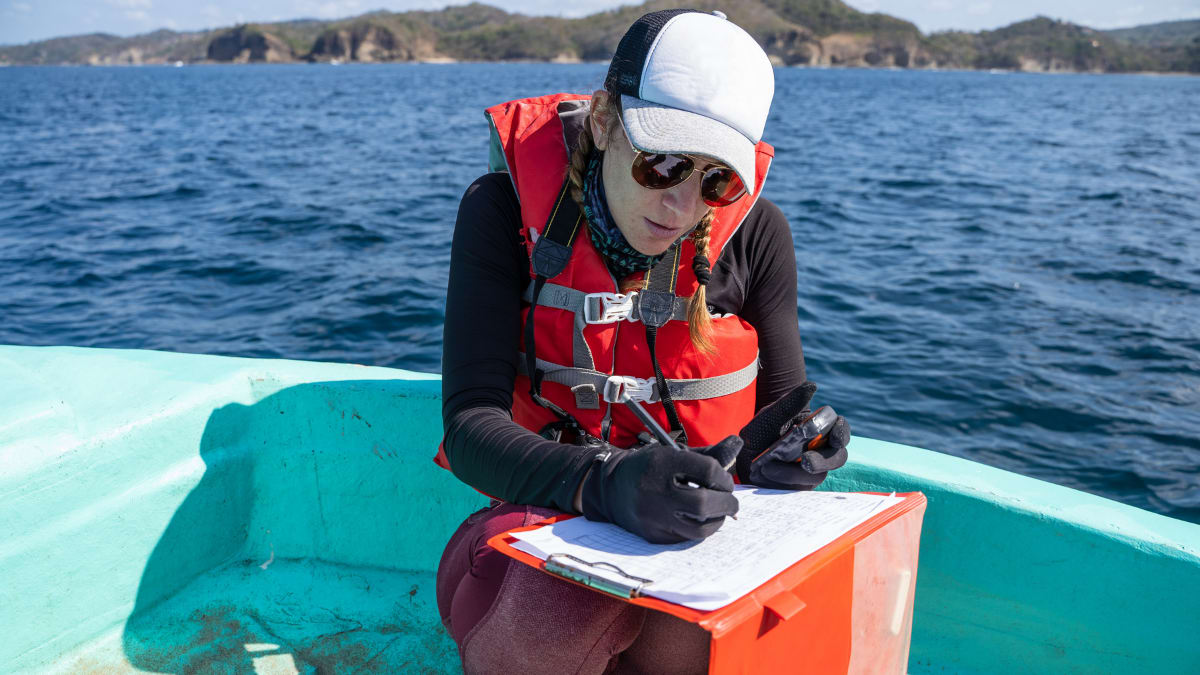
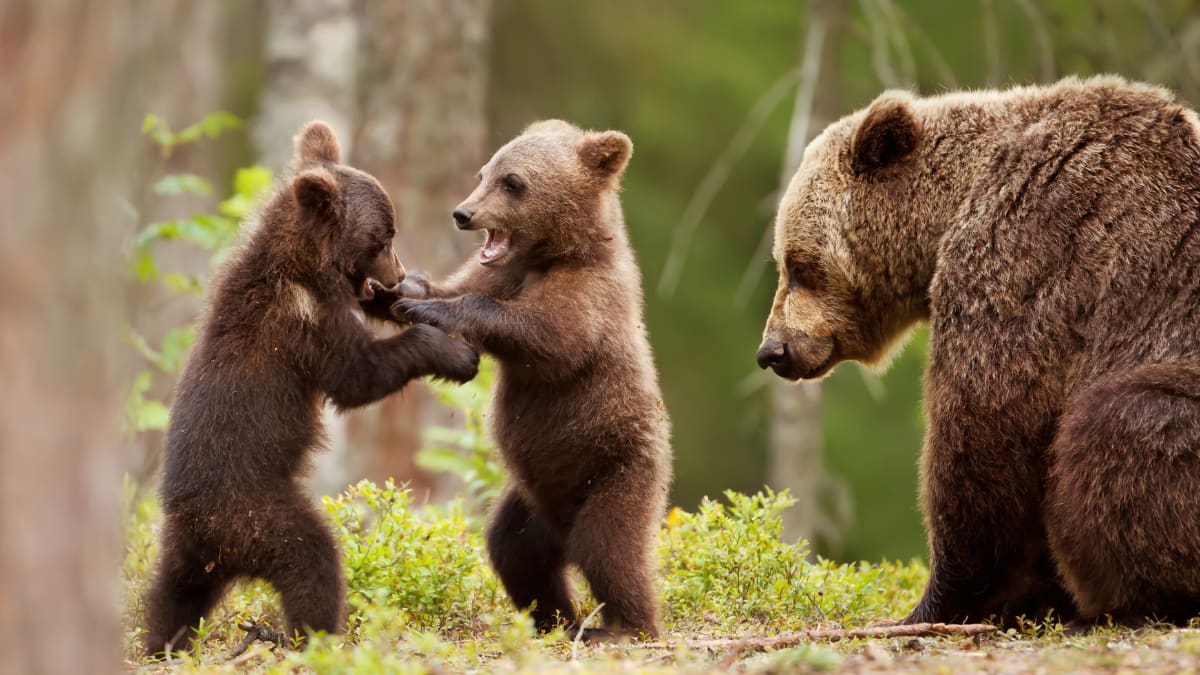
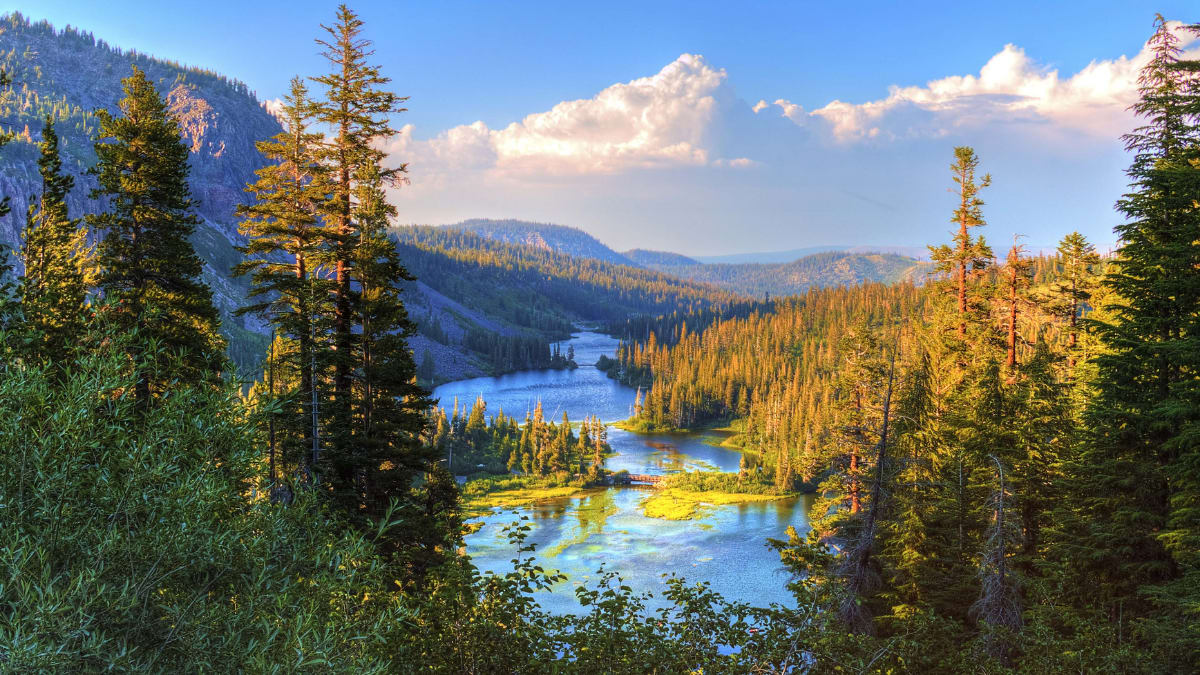
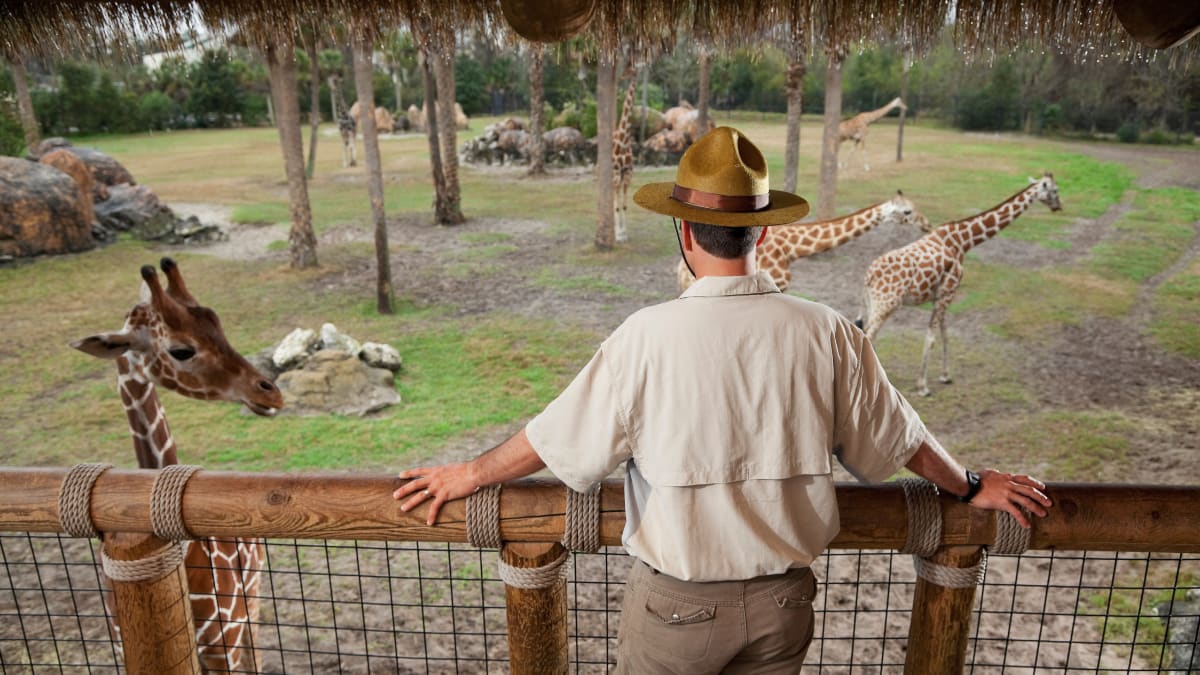
Student Submitted Questions about the Best College Degrees for Animal Lovers
We discussed the topic of the best degrees for animal lovers with current college students to see what questions they had. Below you’ll find these questions and our answers to them provided by our editor, Chloe Dembski. If you have questions of your own, you can submit your question using the form below and we’ll answer it right here in this article!
Kayli asked, “Do I have to get a degree in something animal-related in order to work with animals?”
No! People major in subjects such as film study to make documentaries about animals or communications to speak out about animal injustices. There are many degrees that could inadvertently enable you to work with animals. You just need to decide on your career goals so that you will be equipped for your chosen career. If you want to work in a more hands-on role with animals, it might be smart to work towards a degree that allows you to do this as you could need formal training in the natural sciences.
Evan asked, “Do I have to get advanced degrees to work with animals?”
There are many different jobs where you can work with animals. Some will require advanced degrees, such as a veterinarian or a zoologist. However, others do not require any degrees at all but rather certifications, such as a trainer or a veterinarian technician. It is important to know your career goals so that you can obtain the degree that most fits with your desired career path.
Aaron asked, “What if I don’t know the specific animal degree I want to pursue?”
Many people start out not knowing the specific degree they want to pursue. If this is true of you, take a few classes to see what you are passionate about. Maybe you love learning about the environment, but less so about the anatomy of animals. Keep these things in mind to help shape your decision. Also, look for opportunities for hands-on learning. Maybe you try interning with an agribusiness company and learn it’s not for you. Maybe then you’ll shadow a zoo keeper and realize you love it. Take advantage of as many opportunities as you can until something stands out to you.